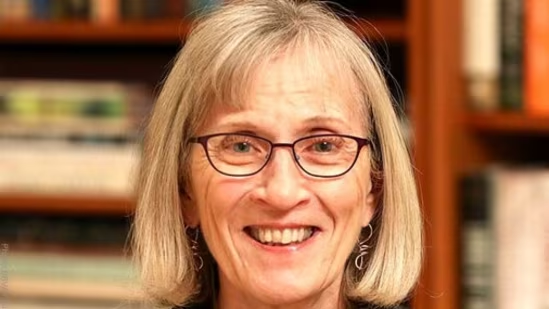Who is Claudia Goldin, winner of Nobel Economics Prize 2023?
Claudia Goldin has been honoured with the 2023 Nobel Prize in Economic Sciences, also known as the Sveriges Riksbank Prize in Economic Sciences, for her groundbreaking work on “providing the first comprehensive account of women’s earnings and labour market participation through the centuries.”

Born in New York City in 1946, Goldin currently holds the position of Henry Lee Professor of Economics at Harvard University. She served as the director of the NBER's Development of the American Economy program from 1989 to 2017 and is a co-director of the NBER's Gender in the Economy group. Goldin is widely recognised for her pioneering research in the field of women's roles in the U.S. economy.
We're now on WhatsApp. Click to join.Goldin's research portfolio spans a diverse array of subjects, encompassing the female labour force, gender-based income disparities, income inequality, the impact of technological advancements, education, and immigration. Her latest book, “Career & Family: Women's Century-Long Journey toward Equity,” published by Princeton University Press, was released on October 5, 2021.
Some of her most influential papers within this field have explored the historical evolution of women's pursuit of careers and family life, coeducation in higher education, the influence of birth control on women's career and marriage choices, women's choice of surnames after marriage as a societal indicator, the factors behind the current predominance of women as undergraduates, and the evolving stages of women's employment throughout their lives.
Nobel Prize recognition
Goldin has been awarded with the prestigious Nobel Prize in Economic Sciences for her ability to uncover "new and often surprising facts" that shed light on the historical earnings gap, which can be attributed to disparities in education and career choices.
According to the official Nobel announcement, Goldin's research revealed that women's choices have historically been constrained, and continue to be limited by the responsibilities of marriage and family life. Her analyses and explanatory models revolve around this core insight, and these patterns have been observed in various countries, extending the impact of her work well beyond the borders of the United States. The statement underscores that her research enhances our comprehension of labour markets, spanning the past, present, and future.
Goldin's findings also indicate that female participation in the labour market does not follow a steady upward trajectory over time. Instead, it takes the shape of a “U-shaped curve”. Married women's participation declined during the transition from an agrarian to an industrial society in the early 19th century, but then rebounded with the emergence of the service sector in the early 20th century. She attributed this pattern to structural transformations and evolving societal norms concerning women's roles in the home and family.
Despite modernisation, economic growth, and an increasing proportion of women in the workforce during the 20th century, the gender earnings gap remained stubbornly wide for an extended period, according to Goldin.
Goldin suggests that part of the explanation lies in the early age at which important educational decisions are made, which have lasting effects on career opportunities. If young women's expectations are heavily influenced by the experiences of previous generations, such as their mothers who delayed their return to work until their children were grown, progress in closing the earnings gap may be slow.
Disclaimer: The copyright of this article belongs to the original author. Reposting this article is solely for the purpose of information dissemination and does not constitute any investment advice. If there is any infringement, please contact us immediately. We will make corrections or deletions as necessary. Thank you.
Title:Who is Claudia Goldin, winner of Nobel Economics Prize 2023?
Url:https://www.investsfocus.com









